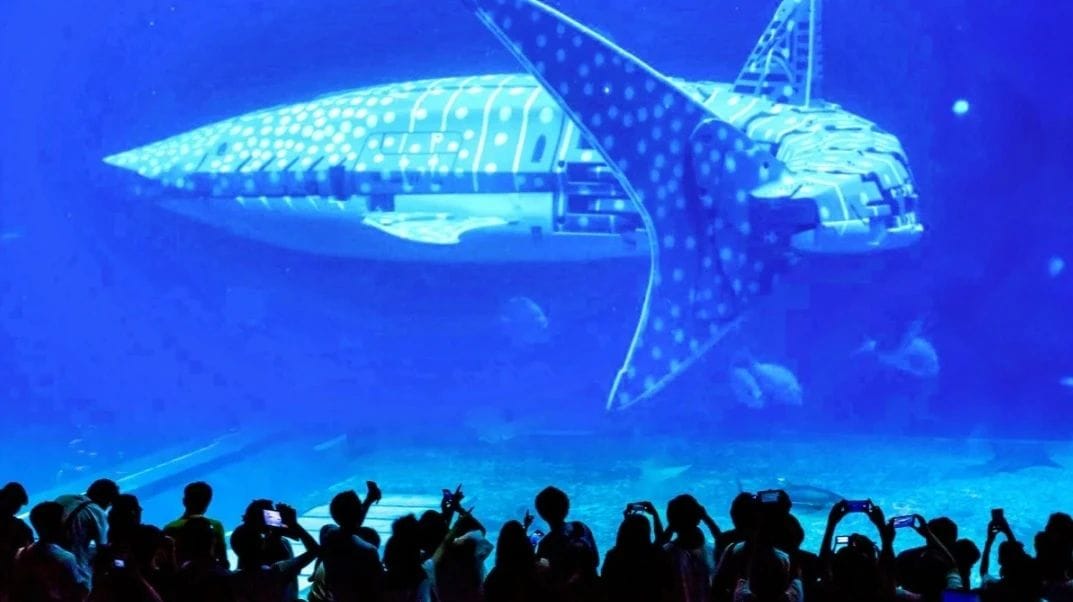
A Chinese aquarium has sparked a heated debate after it was revealed that a life-sized robotic whale shark was displayed instead of a real one. Xiaomeisha Sea World in Shenzhen, Guangdong province, came under fire after the robotic creature was spotted gliding through its tanks following the aquarium’s reopening in October.
While some visitors were impressed by the advanced technology and the lifelike appearance of the robotic shark, others felt deceived, especially considering the hefty 230 yuan ($32 USD) admission fee. Many took to online platforms to express their disappointment and demand refunds. Some even threatened legal action.
However, the aquarium’s use of a robotic whale shark also sparked a discussion about animal welfare and ethical considerations. Some argued that it was a more humane alternative to keeping a large marine animal in captivity, as whale sharks often struggle to thrive in aquarium environments due to space constraints and other factors.
This isn’t the first time a Chinese aquarium has opted for a robotic whale shark. Shanghai Haichang Ocean Park unveiled a similar robotic creature in 2022, developed in collaboration with China Aerospace Science and Industry Corporation. While the robot was designed to mimic the movements of a real whale shark, many visitors found its performance to be somewhat lacking.
Despite the high cost of these robotic marvels, they are significantly cheaper to maintain than real whale sharks. Capturing and keeping a live whale shark can cost millions of dollars, and their lifespan in captivity is often significantly shorter than in the wild.
While the use of robotic animals in aquariums raises ethical questions, it also presents an opportunity for education and awareness about marine conservation. By showcasing realistic robotic creatures, aquariums can inform the public about the challenges faced by marine life and inspire them to take action to protect the oceans.
Ultimately, the debate over robotic animals in aquariums highlights the complex relationship between human curiosity, technological innovation, and animal welfare. As technology continues to advance, it will be crucial to carefully consider the ethical implications of such developments and to strive for a balance between entertainment, education, and conservation.
